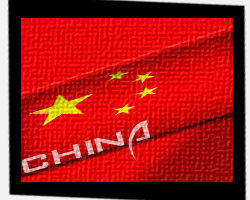Top Chinese critic: Consumerism bad for "People's books"
 Beijing - The rise of consumerism poses a severe test for serious literature in China following the gradual loosening of censorship of non-political content over the past 30 years, says the country's leading literary critic.
Beijing - The rise of consumerism poses a severe test for serious literature in China following the gradual loosening of censorship of non-political content over the past 30 years, says the country's leading literary critic.
As the chief editor of the influential state-run magazine People's Literature, Li Jingze regularly reviews the finest writing from China's established giants of contemporary literature and aspiring young authors who are trying to capture the rapid social change sweeping across the vast nation.
Li, 45, has developed a reputation for sound criticism since the 1990s, winning several major prizes in China.
In an interview with the German Press Agency dpa, he explained his views on censorship, commercialization and cultural understanding, issues that he hopes will be promoted by China's showcasing of its literature at the October 14-18 Frankfurt Book Fair.
"In China the typical readers, who read paperbacks, range from teenagers to under-40s. People over 40 are very busy and have no time to read. They're busy making money," he said.
Children make up a crucial market sector, he explained: "There is one very good thing in China, that parents still buy a lot of books for their children. So the Chinese book industry, at least for literary books, earns money from children to survive."
However, one of the issues facing the Chinese book industry was a rift between commercial and serious literature, he commented.
"Most literature is commercial-style," he said. Serious literature now faces a problem of relatively few readers. But China has a huge population and a huge area, so even a very small proportion is a surprisingly large number.
"We always say that in China nobody reads poems but in absolute numbers, I estimate that hundreds of thousands of people read poems."
Fantasy, detective and horror novels are among the most popular genres, Li said, but he acknowledged that the increasing commercialism is not unique to China. "On the whole, we can do nothing about it. Now we are in a kind of consumer culture.
"The important thing for us is how to maintain and insist upon the creative power of serious literature, and to let readers continue to accept its key values. In this sense, serious literature is facing a severe test."
Questioned about censorship in the Chinese book industry, Li insisted "there are generally no very clear and strict restrictions on literary topics" and that decisions on sensitive content were left to his own discretion.
He made his comments despite many journalists, editors and writers working in China saying they were given lists of banned topics including the Falun Gong movement or the movements for Tibetan or Uighur indepence.
"We do have some problems that need special attention, for example, ethnic problems." This was, however, not a limit to writers' expression: "It is because China has so many minority ethnic groups and there are complicated ethnic relations."
Li admitted that China's 1989 democracy movement, which the ruling Communist Party ended with a brutal military crackdown, "may be an issue we are not willing to touch."
"Of course, in politics, China has a constitution and laws. But I think, to a writer, if he writes novels or poems, he will not change his novel or poem into a political comment. In the end, they are novels and poems," he added. Li said he felt the dramatic socio-economic change of the past 30 years in China had been "too rapid," but he was more confident than some Chinese commentators about the future of books.
"Now there are people saying that reading will end, that nobody will read books and people all use computers and mobile phones. But I don't think the situation is so critical."
Surveys suggested that the number of people reading books in China fell by less than 2 per cent in the last few years, Li said.
A flourishing diversity of fiction and non-fiction emerged in the three decades following the "10 lost years" of the 1966-1976 Cultural Revolution.
While the literature before the Cultural Revolution was similar to the "socialist realism in the former Soviet Union", Li said Chinese literature in the past 30 years "got a kind of liberation. Compared with the past, the writers got much greater freedom in creation and expression."
"Perhaps in expressing the Chinese people's lives today, China's literature is still not deep and full enough, but compared with the past it has made great advances," he said. The Frankfurt Book Fair should give Europeans a chance to understand more of the complexity of modern China and its emerging literature, Li said.
"I think Chinese writers and critics all hope to go to Frankfurt and show the world our books and literature. It is a chance to communicate and have a cultural dialogue with the world." (dpa)